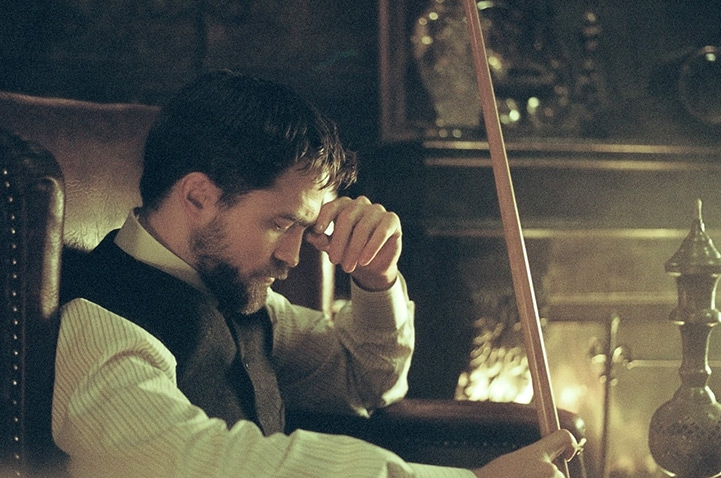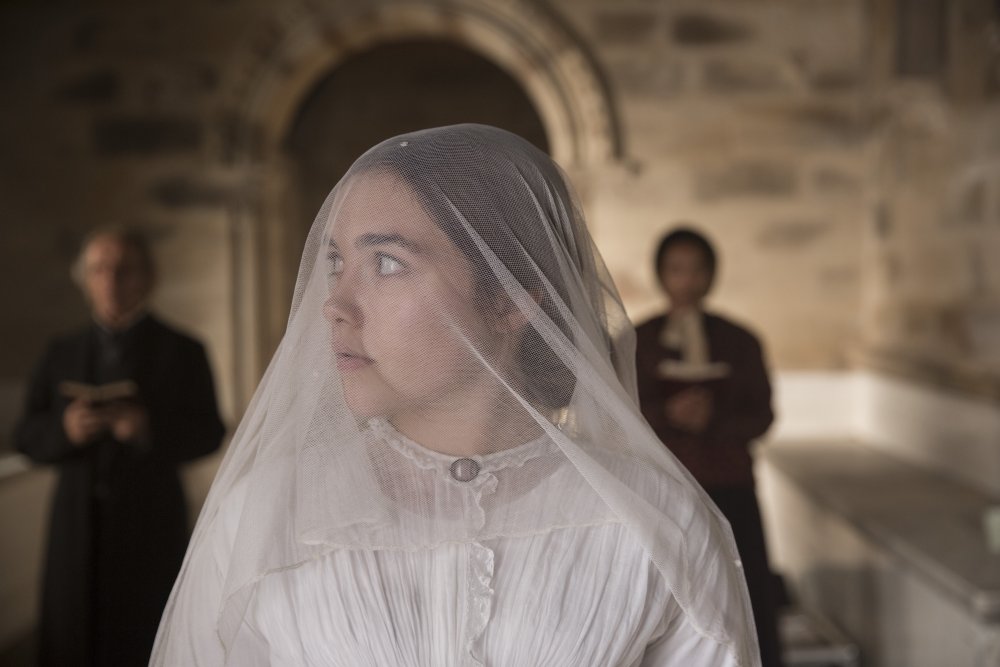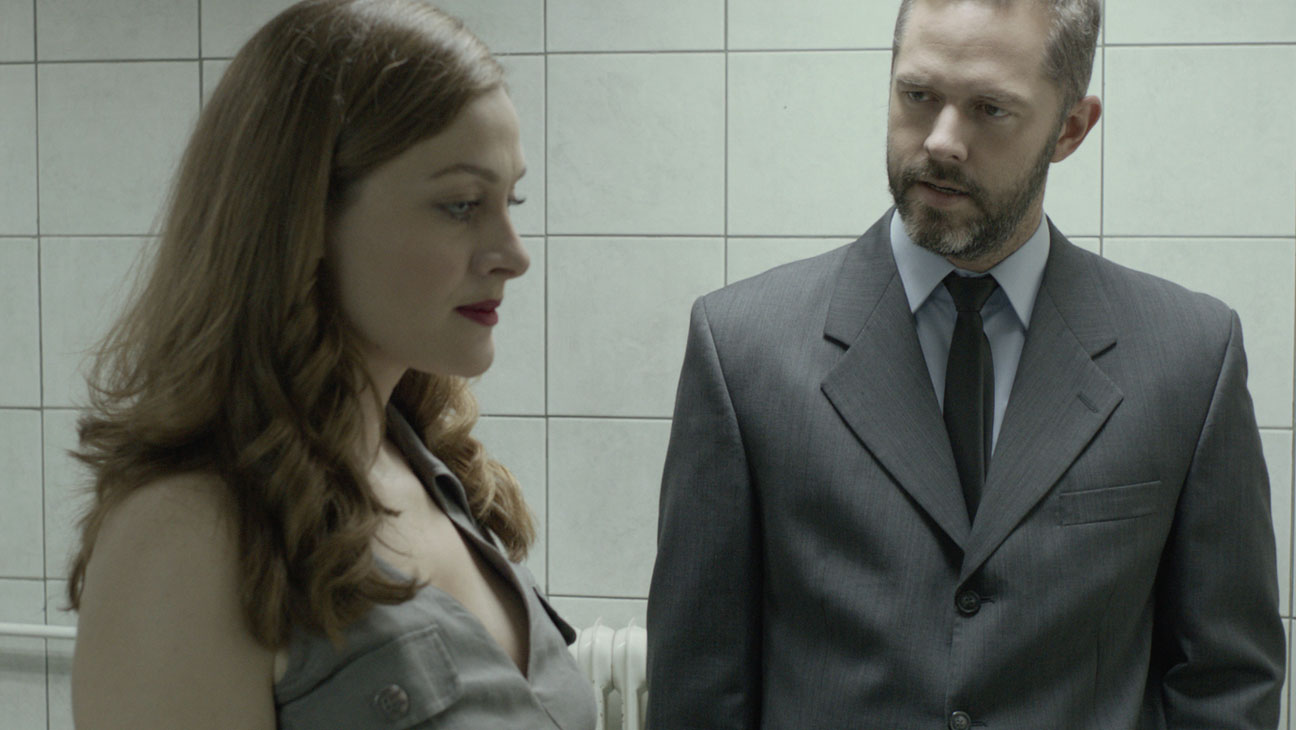6. The Childhood of a Leader (Brady Corbet)

To see “The Childhood of a Leader” on this list should not be surprising, considering the fact that the director, who’d worked as an actor before he settled into the director’s chair, collaborated with Haneke on his American remake of “Funny Games” (and another participant of this list: “Force Majeure”). Obviously he copied some knowledge from him and created one of the best movies of 2016, which gained him international recognition and two major awards at the Venice International Film Festival.
Like the title suggests, “The Childhood of a Leader” follows a young boy through his wealthy early life. Set shortly after World War I, the boy has to face a parental home without love or sympathy. The marriage of the parents is dominated by the father’s mastery. The mother’s submission unloads on the boy and during her affair with one of the man’s advisors. The clever character study describes the boy’s growing will for resistance, ending in the rise to one of the big fascist leaders of the 1930s.
Brady Corbet has a fine eye for the subtle – something Haneke proves in every one of his movies. The sober illustration of the narrative’s characters is interrupted by original perspective changes into the boy’s mind, with a fever dream-like aesthetic, foreshadowing the protagonist’s future fascist mindset.
7. Lady Macbeth (William Oldroyd)

There are some interesting parallels between the vita of Haneke and William Oldroyd. In the early stages of their careers, both worked as theatre directors – a fact that is eminent in their future films. One standout feature of their similar style is how they reduce the film’s tone to a minimum in order to give maximum space and freedom to the actor’s performances. And in the case of “Lady Macbeth,” second-time actress Florence Pugh is a true powerhouse, proving her immense craft.
Based on Nikolai Leskov’s novella “Lady Macbeth of the Mtsensk District,” the story is set in Victorian England in 1865. Katherine is caged inside a forced and loveless marriage and has to face her husband’s sadistic desires. While she just seeks freedom and female acceptance, her pent-up feelings go off against the house’s servants. During her husband’s absence, she starts a dangerous affair with one of them. In the movie’s one-and-a-half hour run time, a web of sex and murder starts to evolve.
Quite like “The White Ribbon,” “Lady Macbeth” is a tense period piece, dominated by beautiful art direction and a reduced style. And like all of the movies on this list, “Lady Macbeth” is a strong character study – in this case about a woman who is trapped in a men-dominated world. As a link in a chain of sadism, she finds herself in a maelstrom of sex, violence and relief. But in a distinct Haneke manner, the movie depicts not only a personal story. In fact, it’s just the cloak for a study about society and the mechanics of suppression and power.
8. Dogtooth (Giorgos Lanthimos)

In recent years, Greek writer and director has Giorgos Lanthimos established himself as one of the most original European filmmakers around. With a thoughtful eye, he focuses on constructed realities and the dynamics of lies inside the boundaries of human societies.
His 2009 feature “Dogtooth” follows a married couple who control and manipulate their children’s minds by encapsulating them from the outside world. In a superficially beautiful estate, the kids are taught that cats are the most dangerous animals on earth, a zombie is a yellow flower, and that one can only leave the property by car.
Lanthimos’ approach on screenplays is original in its most radical manner. In his screenplays, he constructs false realities both on a personal and public basis. He treats these worlds with a precise and nearly clinical gaze, resulting in the fact that his worlds nearly seem to be real. That might be the reason why his films have such a strong impact on the viewer.
Far from being an easy-watching family movie, “Dogtooth” approaches the audience with the lies we live with, the lies we tell others, and most of all, the lies we tell ourselves. Aside from packing a deeply dark fantasy in a tragic story, “Dogtooth” accomplishes something some of Haneke’s movie also did – creating subtle humor among the darkness.
9. Elephant (Gus Van Sant)

“Elephant” attends to one of the most serious themes of recent history. Two American high school boys commit a rampage in their school, killing several students and the headmaster. Loosely, the film is based on the events at Columbine High School that took place in April 1999.
Director Gus Van Sant, who received the Palme d’Or and the award for Best Director at the Cannes Film Festival in 2003, refuses to give any vague or hypothetical explanations for the act. Haneke himself also stated that he doesn’t want to give explanations in his movies, but rather force the viewer to reflect on the movie’s content itself.
While watching, one has the feeling of attending the high school with the pictured students, elevating the horror of the following events to higher levels. But instead of dramatizing and emotionalizing the events, the matter-of-fact narrative operates against a subjective illustration.
Another similarity to the productions of Haneke was the controversial media response. Named as “pointless at best and irresponsible at worst” by Todd McCarthy in Variety, many critics couldn’t befriend the film’s radical approach. But that might exactly be the point of movies – to force a reaction on the viewer’s side.
10. Miss Violence (Alexandros Avranas)

During her own birthday party, 11-year-old Angeliki decides to jump off the balcony and to fall to her death. While social services and the local police try to identify the truth about her apparent suicide, the girl’s family keeps insisting that it was an accident. What are the circumstances that led to her death and why does the family try to go on with their lives like nothing happened? This storyline reads as a Haneke narrative at its best. The family as a theme and the relationships and interdependencies between the family members has always been a huge interest of his.
For his drama “Miss Violence,” Greek director Alexandros Avranas won the Silver Lion for Best Director at the 2013 Venice Film Festival. Through the film’s progress, he unveils the psychological abysses of the family, illustrating everything but a happy family – those existence one definitely mistrusts when watching Haneke’s oeuvre. Every single person in the social orbit of Angeliki has issues to fight with – issues that affected and still affects the lives of related parties.
“Miss Violence” is definitely not a movie with the simple purpose of entertaining, but whose purpose is to demystify a family tragedy and its causes.
Author Bio: Berlin-based Luc Hinrichsen has a bachelor’s degree in audio engineering and plenty of experience in scoring movies on his own, while working for a film distribution company. Besides that, he’s an aspiring screenwriter and director always curious about enlarging his knowledge about film and its history.